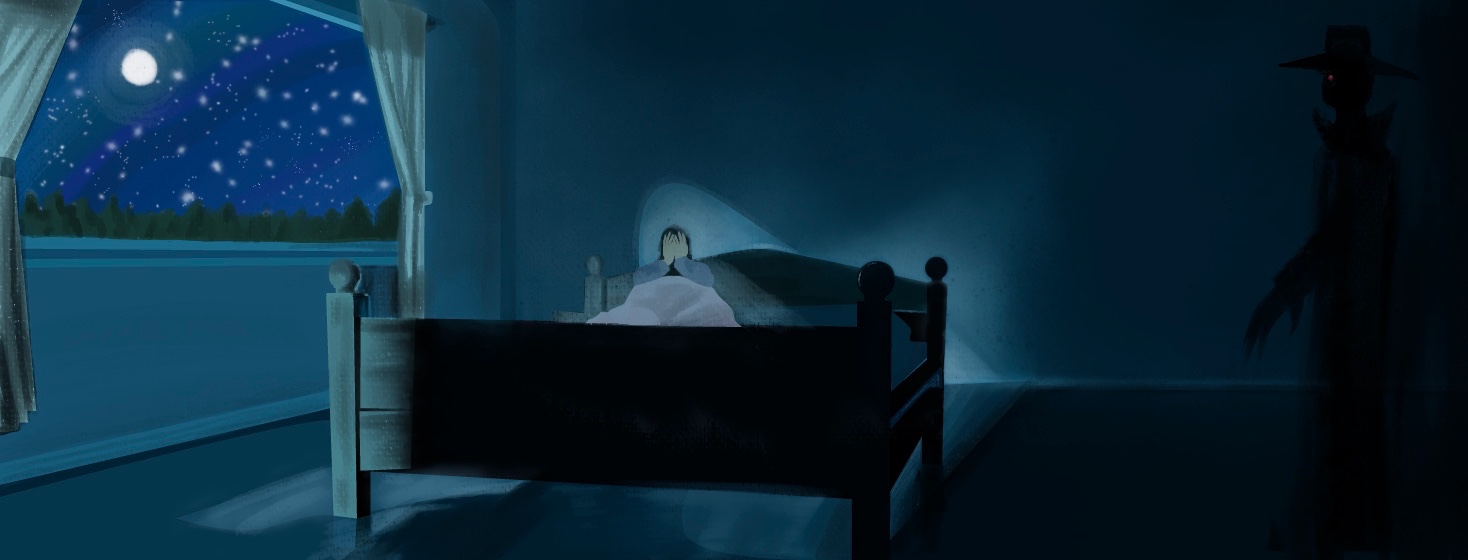Fear of Sleep: It's Not Just for Kids
No one is surprised when a child is afraid of going to sleep. There could be monsters in the closet or under the bed. All of those strange nighttime noises are proof of the danger that lurks nearby!
As adults, we’re expected to have grown out of that bedtime dread. In fact, popular culture tells us we should be seeking out naps and sleeping in whenever we can. But fear of sleep is a real problem for many adults and can lead to insomnia.
What is 'fear of sleep'?
Very simply, fear of sleep is defined as “the fear of being extremely vulnerable during sleep.”1
We are more vulnerable when we sleep since we are in a state somewhere between consciousness and unconsciousness. We are not fully aware of our environment, and we may not react to noises or movements around us. And we have to consciously start giving up control over our environment and reactions in order to fall asleep in the first place.
Fear of sleep is especially common for survivors of trauma. Survivors are often very concerned about their safety. They worry about the risk of ongoing danger and their ability to respond to it. They may also worry about re-experiencing the trauma in different ways (nightmares, flashbacks) when they let their guards down.
While the nature of the "monsters" changes from childhood to adulthood, they are not any less scary.
How does fear of sleep develop?
Frequent nightmares can lead to a fear of sleep. Trauma-related nightmares, in particular, can be very intense and disorienting. They may involve a replay of the trauma, including all of the painful emotions linked to it. This can naturally lead people to want to avoid dreaming, which in turn contributes to a fear of sleep.
Avoidance of vulnerability can also lead to a fear of sleep. Over time and during various life experiences, people may develop unhelpful beliefs about their own safety. For example, they may think, "I can never let my guard down," or "The world is not safe." By definition, we are more vulnerable when we sleep. This leads some people, especially trauma survivors, to equate sleep with danger. They would prefer to stay awake and vigilant to threats.
Ongoing fear of sleep contributes to insomnia by increasing arousal. As bedtime approaches, people who fear sleep will start feeling more emotionally, physically, and cognitively distressed. That hyperarousal makes it difficult to fall and stay asleep.
What can you do about it?
If nightmares are contributing to your fear of sleep, you may benefit from a nightmare-focused treatment. These include imagery rehearsal therapy (IRT) and exposure, relaxation, and rescripting therapy (ERRT). These brief therapies can give people more control over their dreams and reduce the frequency and severity of nightmares.
Practicing relaxation exercises before bed can reduce your stress and anxiety, which can lead to better sleep. Any relaxation strategy can help, whether you like meditating, deep breathing, or listening to soft music.
Cognitive behavioral therapy for insomnia (CBTI) may be warranted if your insomnia has become chronic. It includes cognitive techniques that can help you examine and reframe anxious thoughts that keep you awake.
If you’ve experienced a fear of sleep, let us know in the comments what’s worked for you.

Join the conversation